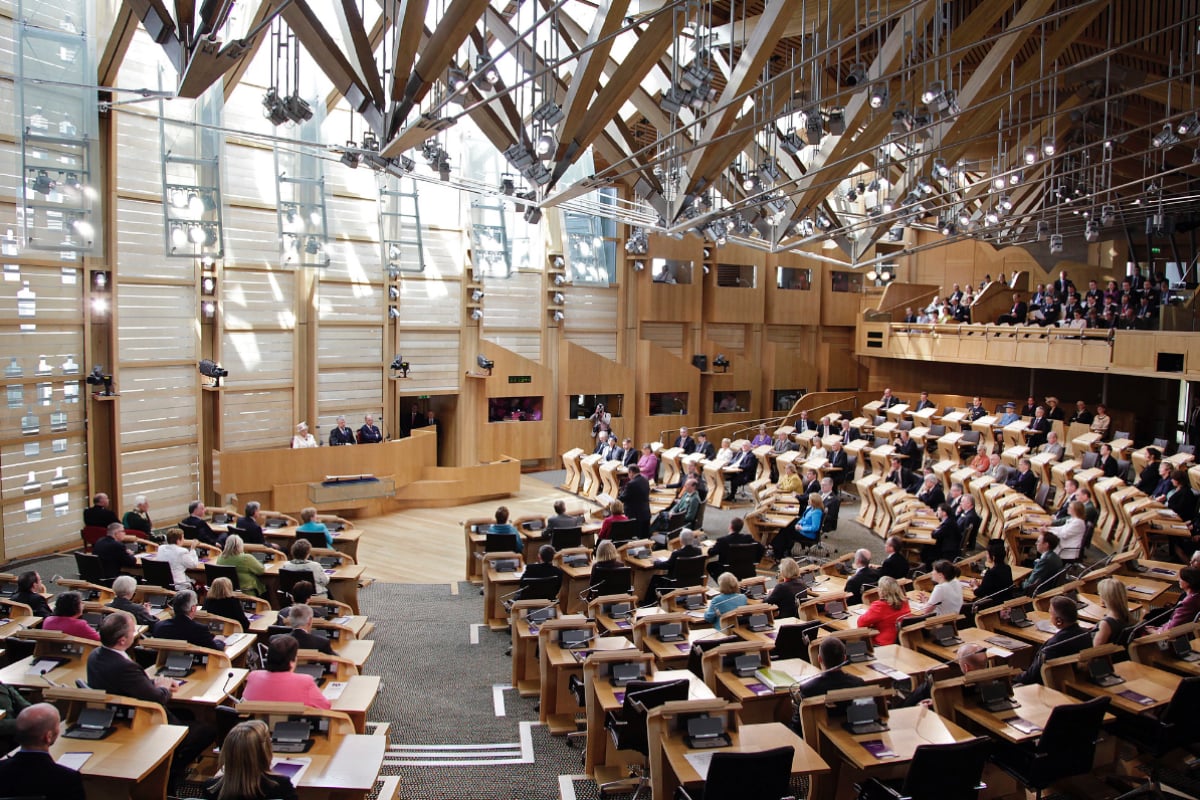
MSPs this week debated the impact of the cost of living crisis on arts and culture organisations
Photo: Scottish Parliament
Scottish Government: supporting arts ‘incredibly challenging’
Following a spate of closures in recent weeks, the Scottish Government is in talks about how to help struggling arts and culture organisations but warns limitations on its powers makes it difficult to respond.
The Scottish Government is in talks with the arts and culture sector on what more can be done to support them through the cost-of-living crisis, its Culture Minister has said.
Speaking in a debate at Holyrood on Tuesday, Scottish Minister for Culture, Europe and International Development Neil Gray said the government has been conducting roundtable discussions with key stakeholders and is open to talks on potential ideas such as establishing support networks for institutions.
However, he warned that the fact that the Scottish Government operates within a fixed budget, does not have borrowing powers or the ability to vary tax rates in-year when a difficult situation arises, makes it is "incredibly challenging" to respond to the situation.
READ MORE:
The debate was held following a host of closures within the sector in recent weeks.
Earlier this month the Edinburgh International Film Festival was shut down with immediate effect after the charity that runs it, the Centre for the Moving Image (CMI), announced it had ceased trading and called in administrators.
Filmhouse Cinema and Café Bar in Edinburgh, and Belmont Filmhouse in Aberdeen also ceased trading as a result.
Meanwhile, the Modern Two art gallery in Edinburgh has been forced to close for winter, and Falkirk Town Hall Theatre is due to close in February.
During the debate Labour MSP Sarah Boyack said that during the parliamentary recess, she hosted a round-table meeting on the impact of the cost of living crisis on the arts and culture sector with around 30 organisations attending.
"They all painted a very grim picture," she said.
"Their consensus was that they need support and that the rhetoric does not match the support that they need now."
Boyak asked what steps the Scottish Government is taking to address the “perfect storm” that the arts and culture sector in the country is facing.
Gray said: "I understand that this is an incredibly difficult and worrying time for the sector, particularly for staff of the venues that she mentions.
"We are engaging with Creative Scotland, as well as with Aberdeen and Edinburgh councils, to provide support where possible for those organisations facing immediate challenges."
"With regard to the Centre for the Moving Image, which includes the Filmhouse, the Belmont and the EIFF, it would not be appropriate for the Scottish Government to comment on on-going legal proceedings.
"However, I assure the member that the Cabinet Secretary for the Constitution, External Affairs and Culture and I have been engaged with key partners over the past few weeks, and Creative Scotland continues to explore alternative options for cultural programming."
Procurement hubs
Boyak suggested that the Scottish Government sit down with the sector, through the Convention of Scottish Local Authorities, to consider ideas that being suggested by the sector for small procurement hubs, similar to an existing scheme in Birmingham, "to make life easier for the sector by taking away some of the bureaucracy that makes life tough for it".
The Birmingham Anchor Network, which launched in 2019, supports participating organisations to maximise the benefit they bring to the city's economy both individually and collectively, providing advice, technical support and training to anchor institutions to build their capacity and harness their combined spending power.
Gray said he has recieved similar suggestions for a round-table session to discuss such ideas, and intends to participate.
"We are, of course, looking to do everything that we can for our cultural venues," he said.
"However, she [Boyak] will also appreciate that we operate within a fixed budget. We do not have the necessary borrowing powers to make a significant difference when such a difficult situation arises, and we do not have the ability to vary tax rates in-year.
"Our ability to respond to the situation is therefore incredibly challenging, especially when we, without any grudge or grievance, need to resolve inflation and higher than predicted public sector pay deals, which are putting an additional burden of £700 million on to the Scottish Government’s budget this year, before they are realised."
Earlier this month Museums Galleries Scotland (MGS), the national development body for the Scottish museums sector, replaced its Museum Development and Small Grant programme with a new Resilience Fund to help institutions facing “significant financial challenges”, in particular the rising cost of energy bills. Gray said the Scottish Government had discussed the plans with MGS ahead of the announcement.
Meanwhile, The Government Energy Bill Relief Scheme, which applies across the UK, will provide a discount on wholesale gas and electricity prices for all non-domestic customers for an initial six-month period from 1 October 2022 to 31 March 2023, at which point it will be subject to review.
Join the Discussion
You must be logged in to post a comment.